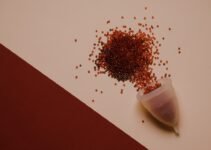Periods are very important for normal functioning of the female reproductive cycle. The menstrual cycle is the series of regular changes that occurs in the female reproductive system preparing the body for a possible pregnancy.
It happens due to rise and fall of hormone levels leading to build up of the lining of the uterus to allow attachment of fertilized egg.
If pregnancy does not occur, the lining of uterus shed down and is discharged through the vagina, this is called menstrual period.
Every woman experiences vaginal discharge due to the shedding of the endometrial lining, at about 28 days interval, throughout her reproductive age until menopause.
Bleeding usually lasts for 3-8 days and ceases as the blood vessels constrict and endometrium begins to regenerate.
Why should you delaying the period
The monthly period is slightly unpleasant for some women, but for others, it may be a major health concern. They may bring with them excessive flow, bloating and pain in the lower abdomen, thighs, and lower back.
There may have times when some women precariously wanted to not have a period in days when they have had a holiday planned, honeymoon, or a big project at work. Some women want to postpone periods due to their own wedding.
There are many options available if you simply want to delay menstruation or prevent it from occurring at all in a particular month. It is important not to follow any of them without consulting your doctor first.
Medical options for delaying the period
1. Norethisterone
It is the most commonly prescribed pill taken 5 mg thrice a day in a cyclic pattern from day 6 to day 26 of the menstrual cycle.
Norethisterone delays periods for up to 17 days. Start taking it three days before your period is due and continue for up to 20 days. Bleeding will restart after two to three days when you stop taking Norethisterone [1].
It contains hormone progesterone. By keeping the progesterone level up, it stops the lining of the uterus from shedding and delay your period.
Norethisterone is not safe for the women who have a personal or family history of thrombosis (blood clots), so it is important to consult your doctor before taking it.
It is also associated with fluid retention, which is also a side effect of progesterone and therefore this may particularly affect the persons if they are suffering from blood pressure, epilepsy, asthma or migraines [2].
2. Combined oral contraceptive pill (COCP)
COCP is another option to delay periods but this method is only for those women who are already taking COCP. You should not use the contraceptive pill to delay your period by starting to take them just a few days before your period is due, it won’t be effective for such a scenario.
For those who are already taking the pills; it is possible to take back-to-back COCP which means that start your next pack of pills as soon as the first one has finished, without having a seven-day interval in between.
Most preparations contain 21 pills followed by a 7-day pill-free interval (or 7 placebo tablets in place of a 7-day pill-free interval).
Some preparations contain 24 days of pills with a shorter pill-free interval. Although 21 days on and 7 days off usually results in a withdrawal bleed during the pill-free interval which is not the same as real periods. After finishing pack of 21 pills, do not take placebo pills.
Instead, start day 1 of your next pack on the day that you would have taken your first placebo pill. Doing this will postpone your period until you have completed the next pack of the pill.
It is safe to take back-to-back pill, but you should still consult your doctor before using it. Unless advised otherwise, you should bleed 2-3 times a year at least to allow the womb lining to shed.
Women who have a family history of venous thromboembolism or smoke are not eligible to take COCP [3].
3. Intrauterine devices
Some intrauterine devices are also used to spare periods. With the use of IUDs- a small plastic device inserted in the womb for up to five years – women with lighter periods have reported that their menstrual flow stopped.
4. Over-the-counter medicine
Tranexamic acid, an antifibrinolytic also reduces blood loss by 50% and is taken during menstruation [4] and mefenamic acid, which inhibits prostaglandin synthesis and reduces blood loss by 30% [5].
Other anti-inflammatory drugs like ibuprofen or naproxen have some potential to help in the short term, but they reduce the flow by only 10%. 800 milligrams of ibuprofen every six hours or 500 milligrams of naproxen three times a day is required to stop a period [6].
This method is not recommended in clinical practice as other hormonal methods are available with better efficacy and little side-effects.
Everybody is different and they have different patterns of bleeding. Some women stop bleeding for the whole year and have no bleeding at all on certain treatments. But some start bleeding again after two to three weeks.
Potential complications
There are some drawbacks when you try to suspend your periods. Some women may experience breakthrough bleeding while using hormonal medications.
They start bleeding at the time when they are not expecting their normal periods. Breakthrough bleeding also occurs when back-to-back COCP is used for a long period of time.
Common side-effects that women report with all hormonal medications are weight gain, headaches, acne, mood swings, bloating, breast tenderness and loss of libido.
Natural ways to delay period
Artificial methods to delay periods may backfire you by causing side effects or hormonal imbalances. To avoid such situations, try some natural ways to skip your periods:
Apple cider vinegar: mix two to three spoons of apple cider vinegar in a glass full of water. Drinking this mixture three times a day would postpone your periods for 3 to 4 days. Drinking this mixture is not a good experience, so be prepared for some twist.
Avoiding spicy food is another option to delay periods. Eating spicy food increases the blood flow and in turn, start your menstrual cycle. If you want the opposite, stop taking spicy food.
Lemon water is another good option to skip periods for some time.
Gelatin: pour one packet of gelatine into a glass of warm water. Wait for five minutes and then drink it. Take 3 cups of this mixture daily for better results.
Exercise: regular vigorous exercise (aerobics or sports) can also be used as a means to avoid periods for a prolonged duration of time.
Natural ways to delay periods are not as harmful as drugs or hormones. Skipping too many periods, however, is not good for health and should not be tried too often.
References
- How can I delay my period? [Link]
- Norethisterone Period Delay Treatment [Link]
- Hormonal Contraception and Thrombotic Risk: A Multidisciplinary Approach -ncbi [Link]
- Tranexamic acid for the treatment of heavy menstrual bleeding: efficacy and safety -ncbi [Link]
- The effect of mefenamic acid and naproxen on heavy menstrual bleeding: A placebo-controlled study [Link]
- Can High Doses of Ibuprofen Delay or Halt Your Period? [Link]




 Ali Anique holds an MBBS degree from the Nishtar Medical University and currently works as a doctor at Nishtar Hospital, the biggest hospital of south Punjab province in Pakistan.
Ali Anique holds an MBBS degree from the Nishtar Medical University and currently works as a doctor at Nishtar Hospital, the biggest hospital of south Punjab province in Pakistan.
my last period was february 15 2014 i am normal cycle im delayed now for 9 days please help me what to do